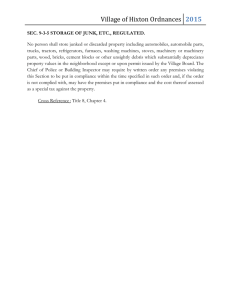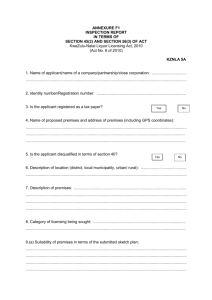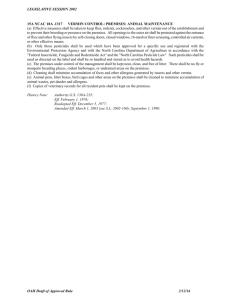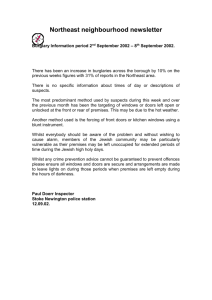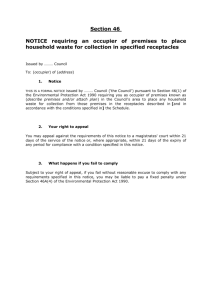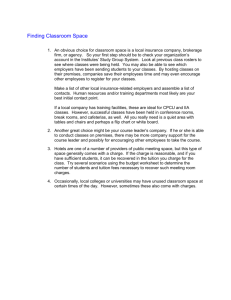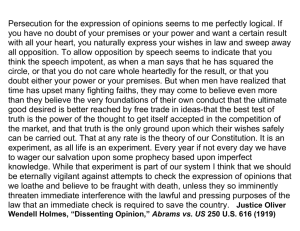Food safety - health.vic
advertisement
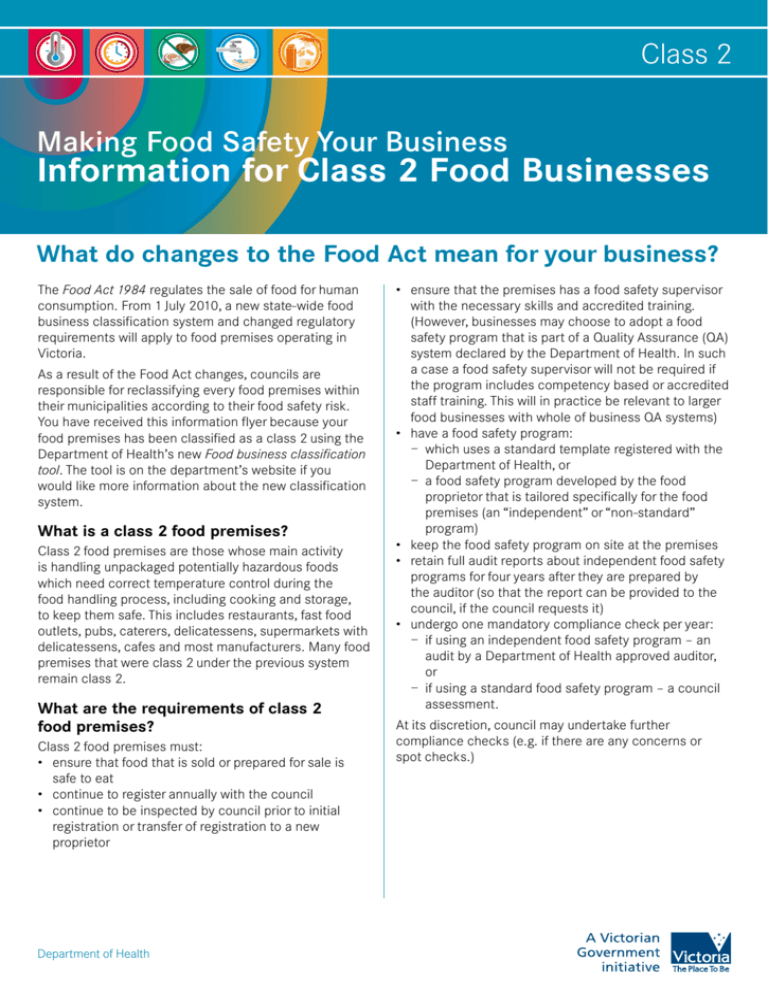
Class 2 Making Food Safety Your Business Information for Class 2 Food Businesses What do changes to the Food Act mean for your business? The Food Act 1984 regulates the sale of food for human consumption. From 1 July 2010, a new state-wide food business classification system and changed regulatory requirements will apply to food premises operating in Victoria. As a result of the Food Act changes, councils are responsible for reclassifying every food premises within their municipalities according to their food safety risk. You have received this information flyer because your food premises has been classified as a class 2 using the Department of Health’s new Food business classification tool. The tool is on the department’s website if you would like more information about the new classification system. What is a class 2 food premises? Class 2 food premises are those whose main activity is handling unpackaged potentially hazardous foods which need correct temperature control during the food handling process, including cooking and storage, to keep them safe. This includes restaurants, fast food outlets, pubs, caterers, delicatessens, supermarkets with delicatessens, cafes and most manufacturers. Many food premises that were class 2 under the previous system remain class 2. What are the requirements of class 2 food premises? Class 2 food premises must: • ensure that food that is sold or prepared for sale is safe to eat • continue to register annually with the council • continue to be inspected by council prior to initial registration or transfer of registration to a new proprietor Department of Health • ensure that the premises has a food safety supervisor with the necessary skills and accredited training. (However, businesses may choose to adopt a food safety program that is part of a Quality Assurance (QA) system declared by the Department of Health. In such a case a food safety supervisor will not be required if the program includes competency based or accredited staff training. This will in practice be relevant to larger food businesses with whole of business QA systems) • have a food safety program: −− which uses a standard template registered with the Department of Health, or −− a food safety program developed by the food proprietor that is tailored specifically for the food premises (an “independent” or “non-standard” program) • keep the food safety program on site at the premises • retain full audit reports about independent food safety programs for four years after they are prepared by the auditor (so that the report can be provided to the council, if the council requests it) • undergo one mandatory compliance check per year: −− if using an independent food safety program – an audit by a Department of Health approved auditor, or −− if using a standard food safety program – a council assessment. At its discretion, council may undertake further compliance checks (e.g. if there are any concerns or spot checks.) Information for Class 2 Food Businesses What do changes to the Food Act mean for your business? What are some key changes for class 2 food premises? There is flexibility for class 2 food premises: • For premises that are already registered, for the present continue using your existing food safety program template • A new simplified Department of Health Food safety program template for class 2 retail and food service businesses no.1, version 2 will be available for those premises that use a template: −− this template will be available from your local council at no cost to you to assist you when you renew the registration of your premises −− premises using the old Department of Health Food safety program template no.1, version 1 will need to change to the new template on renewal of their food business registration during 2010/2011 • If using an independent food safety program, the proprietor can choose to have audits conducted by any auditor approved by the Department of Health. That audit can – as at present – be conducted by an independent private auditor, or – if the local council offers audit services – by a council auditor • Some businesses may choose to develop a food safety program under a declared QA system or code, so that the program can be incorporated into the larger whole of business system. (Contact the Department of Health if this is relevant to your business) • Class 2 premises no longer have to provide their premises’ statutory audit certificate to council – this will be the responsibility of the auditor. Free online food handler learning program To help maintain safe food handling practices, the Department of Health has also made available for your food premises and staff the ‘Do Food Safely’ program, a free online food handling learning program. (This course is designed to improve basic knowledge of food safety). (Special arrangements apply to occasional community group food activities. If you are a community group that has stalls at events or occasional food activities in community halls please refer to the separate information sheet for community groups.) This information sheet explains the recent changes to Victoria’s Food Act. The national Food Standards Code continues to apply to food premises and is not affected by changes to the Act. More information about class 2, the Food Act reforms, and when the new food safety program template will be available can be accessed on the Department of Health website: http://www.health.vic.gov.au/foodsafety/ or by contacting the Health Unit of your local council: http://www.localgovernment.vic.gov.au/ A free online (non-accredited) food safety learning program can be accessed at: http://dofoodsafely.health.vic.gov.au/

